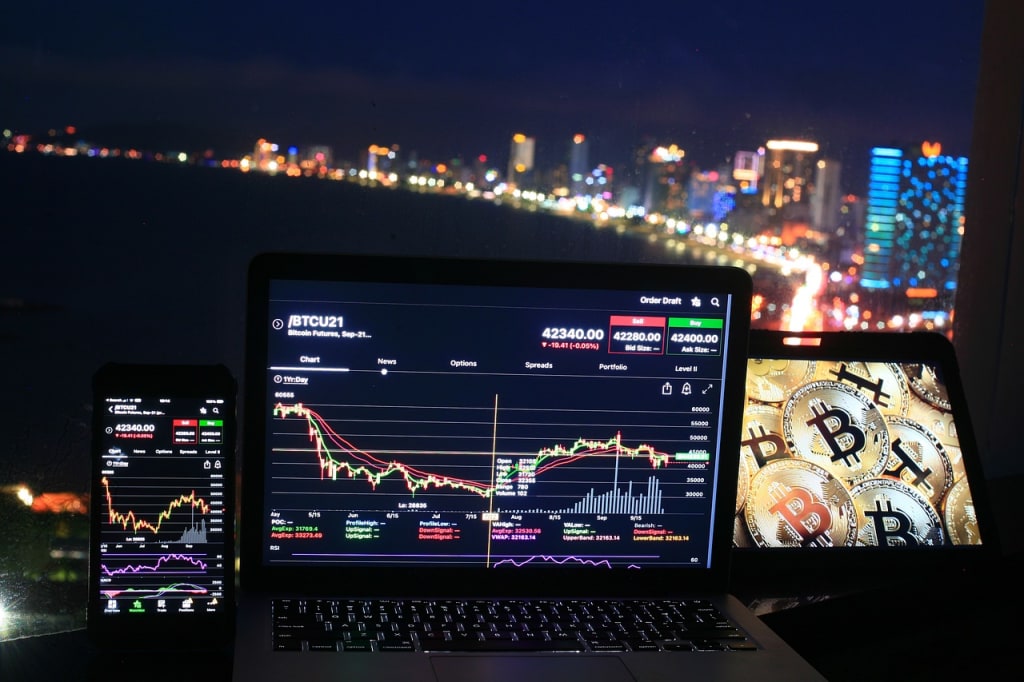The Rise of NFTs: A Beginner's Guide
Personal Finance: - Money-saving hacks and budgeting tips - Investing in cryptocurrencies: Risks and rewards - Passive income ideas for financial independence - Guide to starting a successful online business - Retirement planning and smart financial decisions

Introduction:
In recent years, the world has witnessed the rise of Non-Fungible Tokens (NFTs), a digital asset class that has gained significant attention and popularity. From digital artwork to virtual real estate, NFTs have revolutionized the way we perceive and trade digital assets. In this beginner's guide, we will explore the concept of NFTs, their underlying technology, and their impact on various industries.
Understanding NFTs:
1. What are NFTs?
NFTs are unique digital assets that exist on blockchain networks, typically utilizing Ethereum's blockchain. Unlike cryptocurrencies like Bitcoin or Ethereum, which are fungible and can be exchanged on a one-to-one basis, each NFT has distinct properties that set it apart from others. This uniqueness and ownership verification make NFTs valuable and desirable in the digital realm.
2. How do NFTs work?
NFTs utilize blockchain technology to provide a transparent and immutable record of ownership. They are built on smart contracts, which are self-executing contracts with the terms of the agreement directly written into the code. These smart contracts store information about the asset, including ownership, provenance, and transaction history, ensuring authenticity and preventing fraud.
Applications of NFTs:
1. Digital Art:
NFTs have revolutionized the art world, enabling artists to tokenize their digital creations and sell them directly to collectors. NFTs provide artists with new opportunities for monetization and greater control over their work. Additionally, NFTs offer collectors provable ownership and scarcity in the digital art market.
2. Gaming and Virtual Assets:
NFTs have found significant use in the gaming industry, allowing players to own and trade in-game assets. Virtual land, characters, weapons, and other digital items can be represented as NFTs, enabling players to have true ownership and transferability of their virtual possessions.
3. Collectibles and Memorabilia:
NFTs have revitalized the concept of collectibles and memorabilia in the digital realm. Sports trading cards, virtual collectibles, and unique digital items can be tokenized as NFTs, creating a market for rare and valuable digital assets.
4. Music and Entertainment:
NFTs have opened up new possibilities for musicians and entertainers to monetize their work. Musicians can release limited edition albums, exclusive merchandise, or concert tickets as NFTs, offering fans a unique and valuable experience. NFTs also provide a means for creators to receive royalties and revenue from secondary sales of their work.
Challenges and Considerations:
1. Environmental Impact:
NFTs have faced criticism due to the significant energy consumption associated with blockchain networks, particularly Ethereum. The process of minting and trading NFTs requires computational power and energy, leading to concerns about the carbon footprint of NFT transactions. However, efforts are being made to explore more sustainable alternatives.
2. Copyright and Intellectual Property:
The ownership and rights surrounding digital assets can be complex in the NFT space. It is essential for creators to understand copyright laws and ensure they have the necessary permissions and licenses to tokenize and sell their work. Likewise, buyers should be cautious when purchasing NFTs and verify the authenticity and rights associated with the asset.
3. Market Volatility and Speculation:
The NFT market has experienced rapid growth and substantial price fluctuations. While some NFTs have sold for significant sums, there is also a risk of speculative bubbles and inflated valuations. It is important for buyers and sellers to exercise due diligence and make informed decisions when participating in the NFT market.
Conclusion:
Non-Fungible Tokens (NFTs) have ushered in a new era of digital ownership and value. By leveraging blockchain technology, NFTs have transformed
industries such as art, gaming, collectibles, and entertainment. However, as with any emerging technology, there are challenges and considerations to navigate. As the NFT market continues to evolve, it is crucial for creators, buyers, and enthusiasts to stay informed, understand the implications, and contribute to the responsible and sustainable growth of this exciting digital asset class.
About the Creator
Mohamed Rimzan
One day I will find the right words, and they will be simple.






Comments
There are no comments for this story
Be the first to respond and start the conversation.